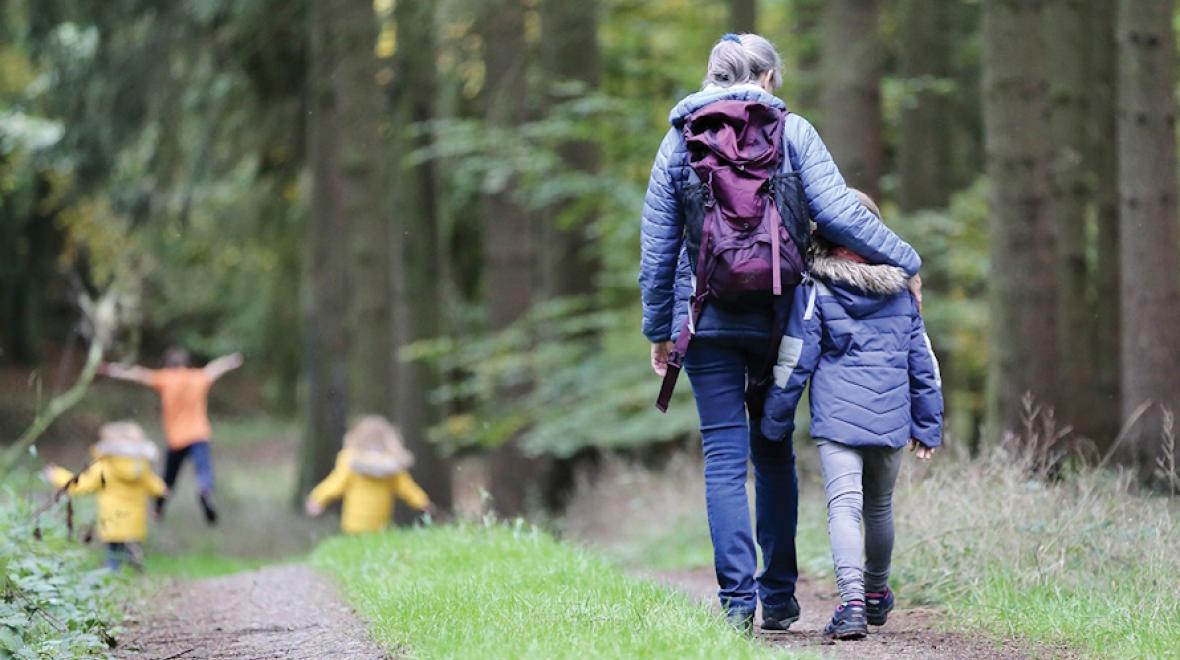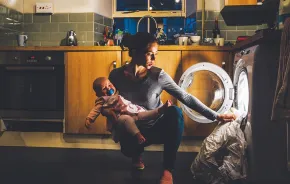
“So, when is this going to kill me?” I asked my son, the surgical oncologist. “It could be years,” he replied, with his signature optimism and more than a little high-spirited bravado, the kind only a family member who’s a medical professional could muster.
It has been several gut-wrenching, hard-hitting, life-changing years since I was diagnosed with cancer. And not the good kind of treatable, manageable cancer (really, is there a good cancer?), but the kind that has you thinking: Are my cousins coming out here from the East Coast just to enjoy the splendors of our beautiful city — or are they here to make sure they get to see me before things escalate? Are my brother and sister-in-law visiting again from San Mateo to see their beloved nieces, or could they be checking on me?
I call these visits “One Last Kiss.” Private joke.
My children are grown-ups now, a crucial element that gives me comfort. Both married, they are successfully ensconced in meaningful and thriving careers, and happily parenting kids of their own. I’ve always leaned into issues surrounding health, reading articles published in MedlinePlus and The New England Journal of Medicine, as if I could fully comprehend peer-reviewed medical reports. So, it probably surprised no one that I fostered the kind of environment that would propel at least one of my children into the health-care field. My daughter, an attorney, rounds out the balance you get when you’re parenting a doctor and a lawyer.
For the most part, my friends have supplied me with warmth and support, furnishing everything from the proverbial casseroles (no, but thanks) to what counts most: the ability to listen without giving advice, and the patience to share precious moments and memorable experiences.
It’s my grandchildren I worry about the most. Their ages range from 12 to 20, and when it comes to me, their emotions span from care and curiosity to distress and apprehension. My oldest granddaughter, much like her mother, draws on distraction and direction. Distraction can take shape as a video of her dancing beautifully in a college production she has choreographed; direction will typically include detailed instructions regarding an upcoming trip she and her parents have planned for the family. The voyages can be simple enough to mean long, leisurely strolls through the Ballard Farmers Market, or grand enough to materialize as a vacation in Italy or France.
My grandsons, ages 12 and 15, live in Ann Arbor, Michigan. They both comforted their father the night he told them I was sick. As distressing as it was to hear that, I quietly took pleasure in the unmistakable fact that they, indeed, possess empathy.
All of them offer extra-tight hugs when they greet me or leave me. All of them make a point to relate anecdotes that crystallize their experiences in science class or fencing … or business analytics (whatever that is). And all of them will be distressed if I get worse, unless the brainiacs working on treatments and cures can come up with a Magic Bullet.
I would like to alleviate their angst, their worries and their anxiety. What grandparent wouldn’t?
But the truth is, I can’t. We can spend time together. Shopping for a prom dress, check. Playing with a drone on the beach, check. Watching “Schmigadoon!” — check, but what is this show about, anyway?
It’s a challenge to avoid feeling guilty that I’ve visited this particular anguish upon them, when they should be focusing only on all the good things in their young lives.
But sometimes, reality creeps in, and not always in a positive way. We call that life. Youth, hopes and dreams, and plans can divert what life can bring to the table. There’s a learning curve here somewhere, and that’s not necessarily a bad thing. Facing obstacles can build resilience. It can teach kids how to overcome hardship and help them emerge stronger — and with any luck, just a bit smarter. They learn “how to deal”; how to be a helper and protector; and most of all, how to love unconditionally.
And that is the silver lining.











